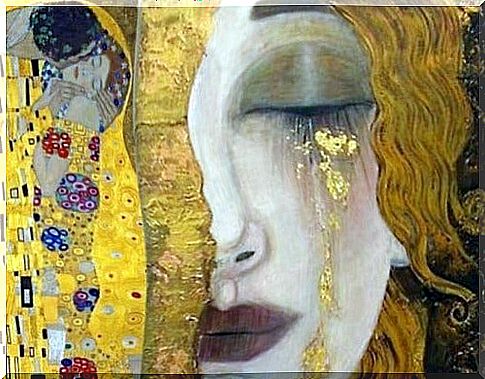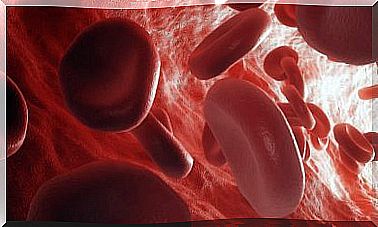When Sadness Becomes Chronic: Dysthymia
Dysthymia is a mood disorder that involves prolonged sadness, beyond 2 years. Also, it must be accompanied by a series of physical symptoms of mild to moderate intensity. For example:
- Eating problems
- Insomnia or hypersomnia
- Irritability or anxiety
- Hopelessness and emptiness
- Lack of concentration
- Etc.
Dysthymia is not as serious a disorder as depression. However, the chronicity of this state of mind can also cause significant interference in our life.
Psychological and pharmacological therapy should be considered in its treatment. In this article we will give you the keys so that you know what dysthymia is and how to deal with it.
What is dysthymia?

It is a type of depression, but with important affective and emotional nuances that the fifth edition of the Diagnostic and Statistical Manual of Mental Disorders (DSM-5) establishes under another quite clear name: persistent depressive disorder. We explain what the main characteristics are:
- It is a state of constant sadness and discouragement. There are no better and worse times, but this negative emotional feeling usually lasts more than two years.
- It is worth knowing that this type of disorder almost never depends on “external factors”, that is, it is not necessary to suffer loss or disappointment to fall into this type of depression. The origin is organic and almost always hereditary, and generally affects women.
- It usually appears over the age of 21.
- There are quite serious cases, people who, for example, are unable even to take care of themselves and who need daily help to eat, to clean themselves … They are, as we say, cases in which dysthymia is more pronounced.
- Despite having a hereditary component, stress tends to exacerbate that feeling of despondency even more, so that it can cause us to end up falling into that more serious state previously mentioned.
- Sadness is compounded by bad mood, tiredness, insomnia, eating problems and difficulty concentrating.
- If dysthymia is not treated in time, it can perfectly lead to “major depression”, that is, an even more serious mental disorder where anger, rage and even suicide attempts can also appear. It is very dangerous, hence the importance of treating these types of problems as soon as possible.
How is dysthymia treated?
First of all, we must be clear that dysthymia is a pathology that must be managed throughout our entire existence. Can we have an adequate quality of life in our day to day? Of course. It can be achieved, as long as we follow the following guidelines:
- Antidepressant drugs.
- Follow behavioral and cognitive psychotherapies, more group dynamics.
- Have regular medical monitoring throughout our lives.
- Have good social and personal support.
Origin of dysthymia
We must bear in mind, first of all, that the origin of dysthymia is hereditary and, therefore, organic. There is almost always a slight alteration in the neurotransmitters of serotonin. This means that the drugs will be effective and that psychological therapy will undoubtedly be of great help. However, these treatments will have to be followed practically for a lifetime. You will be able to enjoy your day to day, you will be able to go to work and fulfill your dreams and goals.
Now, people who have been diagnosed with dysthymia need to be aware of their own problem and maintain a great inner strength to understand what is happening to them. It is a disease that must be controlled, treated and, above all, they must take proper care of its sources of stress and anxiety, because they can become triggers of dysthymia in its most serious state.

Remember also that if someone in your family has this disorder, you have a very high probability of suffering it as well. Take action, talk to your doctor and follow all their advice. To conclude, I should also point out that it is important that you know how to differentiate dysthymia from normal depression:
- Dysthymia appears over the age of 21 or earlier, and it is a permanent state of sadness without there being any specific reasons that originate that emotion, that dejection. It lasts between a year and a half and two years and, if not treated in time, can lead to a more serious depression where suicide attempts already appear.
In conclusion, dysthymia represents a psychopathology of moderate intensity that causes physical and emotional discomfort to those who suffer from it. However, there are real possibilities to combat it, especially through cognitive-behavioral therapies and psychotropic drugs.









